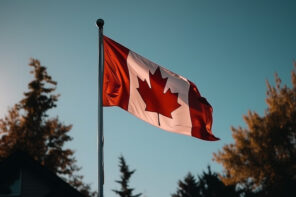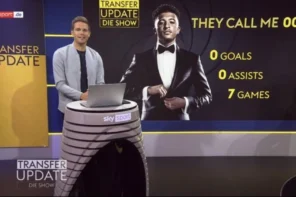On January 22nd, midway through the NBA season, 1st overall draft pick Zion Williamson made his debut for the New Orleans Pelicans. Williamson, injured in the pre-season, had not logged one minute of regular season NBA basketball. And yet, by the time the final buzzer sounded, Williamson’s first game had brought in a peak television viewership of 27.7 million households in the U.S. To put that into perspective, that is the most people to watch an NBA game this season outside of Christmas Day (the most popular date in the NBA calendar), and that viewership is up 88% from a comparable B.Z. (Before Zion) game from last season. That’s where being the most publicized rookie player since LeBron James will get you.
Unlike LeBron, however, Williamson was not the most highly touted NBA recruit coming out of high-school. He was certainly popular — mobile videos of his earth shattering dunks have filled Twitter feeds since he was sixteen — but Williamson did not become the Zion Williamson until his one year stop-over at Duke University. The media exposure that a high-profile basketball school like Duke provided, along with the opportunity to compete against the highest level of collegiate competition, allowed Williamson to rapidly enter the national conversation. Duke didn’t fare too badly with the brief partnership either; their games became must-see television for any fan of the sport.
That is what an established national college sports culture can do: electrify an institution, energize a nation, and propel a high-school phenomenon into superstardom before he even played a professional game.
As a student at McGill and a Canadian, I envy the excitement a bona-fide college sports star like Williamson can bring, and I wish we could import some of that magic up north. Now, our Williamson likely wouldn’t be a basketball player; despite the Toronto Raptors’ recent success, the U.S. is still the unopposed place to be for all things ‘ball. But what about hockey, eh? Imagine if there was an equivalent young player of Zion Williamson’s calibre, say Edmonton Oilers star Conner McDavid, who had agreed to play at McGill? People would be climbing over each other to get tickets to the game. McDavid Jerseys would be flying off the shelves. It would be pandemonium. Hell, one year of McDavid would make it worth going here, and I don’t even really like hockey. Plus, with all the extra funds a player like McDavid could bring in to the administration, they might be able to stop asking me for alumni donations, and I haven’t even graduated yet!
The way the system is currently constructed….there really is little incentive to play up North.
Unfortunately for those of us interested in exciting sports at McGill, the best prospects do not even consider playing Canadian college hockey at all. Many of our most gifted athletes earn salaries playing in junior professional leagues while still teenagers, and they are usually drafted into the NHL before making it to university. Of the top ten Canadian prospects heading into the 2020 NHL draft, nine of them currently play for a junior professional team. For those interested in pursuing a post-secondary education rather than going professional, U.S. schools offer better facilities and more scholarship dollars.
How could anyone really blame players for opting to avoid a brief pit-stop at a Canadian school like McGill? The way the system is currently constructed — where the best players can earn six figure salaries immediately after high-school, or recieve scholarships to U.S. schools and play in a more highly developed sports culture — there really is little incentive to play up North.
But that system could change. Millions of Canadians watch the under-18 International Ice Hockey Federation tournament every year, and if those same players went on to have collegiate careers, I bet those same Canadians would want to see them play, either in person or on-screen. If Canadian universities started recruiting heavily, investing in facilities and training staff, and working with broadcasting partners to televise and stream college games, maybe Canadian college sports could become a national phenomenon.
Of course, action from the administration is only one half of the equation. As students, we also have the capability to make McGill and other Canadian universities a more enticing option for our most talented athletes. Yes, the best sports universities in the U.S. have fantastic facilities and world class training staff, but they also have rollicking crowds regularly filling the stands. Williamson had his Cameron Crazies — fiery student fans who cheered on his every basket, block, and steal. Where are the McGill student fans, the Montreal Maniacs if you will? As of right now, they don’t exist.
Learning about our teams, going to games, showing some passion, these are all steps in the right direction.
I’ll be the first to admit that I have never gone to see a McGill team play. Young athletes want great coaching and equipment — and like anyone else, they want a salary if they can get it — but they also want the chance to play in front of fans who truly care. Learning about our teams, going to games, showing some passion, these are all steps in the right direction.
For those who are destined for NHL superstardom, McGill could offer the Zion experience: a chance to build a brand and foster excitement before stepping onto NHL ice.
If both of these things were true, investment from administration and enthusiasm on the part of students,there would be a chance to bring the best to play at McGill. For those players who aren’t going to make it as pros, McGill could offer a moment in the spotlight. It could give players an opportunity to be a part of the national conversation in a way they couldn’t be at a U.S. school, where hockey competes for attention with more popular sports such as football and basketball. For those who are destined for NHL superstardom, McGill could offer the Zion experience: a chance to build a brand and foster excitement before stepping onto NHL ice.
It’s a little bit of a chicken or egg scenario. For college sports to matter, they need to attract the most promising players. On the other hand, for those players to want to come to a specific university, college sports need to matter to that school already. It seems to me like Canadia is ready for our version of Zion, but schools and students have been unwilling to take the necessary steps to make that a reality. Who knows, perhaps for us in Canada to reach Zion levels of college sports spirit, one university — administration and students alike — just needs to make the first move. Why not let this university be McGill?







